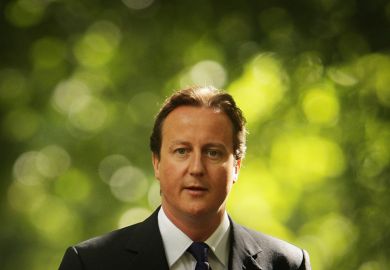Does being competitive necessarily mean foregoing kindness?
In essence, this was the question posed to Uta Frith at the end of her public conversation with me last week (you can hear the whole conversation here). Uta didn’t give a completely explicit answer, but it seems to me the answer has to be no, not necessarily - but it does depend who you are trying to compete with.
Undoubtedly there are many PIs (private investigators) who are ultra-competitive. They may be competitive with their peers; they may make this abundantly clear in terms of wanting to be the first to achieve some landmark experiment or to solve an apparently intractable problem. But this does not necessarily mean – although sometimes it may – that they are unpleasant about the competition.
It can be an entirely personal driver. Sometimes, indeed, the only person they are competing with is themselves, constantly pushing themselves to new heights as it were. I think I would put myself in that camp.
Competition in that case might be seen as simply an additional bit of adrenalin rather than something inherently nasty. (Of course, sometimes one can end up being very nasty to oneself, but that’s a different story).
Nevertheless, some people will indeed be competitive directly with others.
In this category, I am reminded of the person I met to discuss diversity issues with in a university not my own who, when I mentioned I had just come from their vice-chancellor’s office and what a nice room it was, proudly told me that their office "was bigger".
I felt we were not off to a good start on the more subtle philosophical front of discussing gender issues, albeit the person was entirely committed to increasing the number of women studying STEM in their faculty.
Moving on from that, some people will indeed play dirty in a competitive spirit in their approach to research. This can be just as true amongst team members as PIs, one of whom may be tempted to sabotage a peer’s experiment so that they can gain kudos themselves.
Pressure to publish may lead to some very unattractive, indeed unethical behaviour. This is where competition gets truly nasty, and where the current HE system may indirectly promote it due to too many criteria for success embodying the "winner takes all" spirit.
To resolve this, at least in part, we need to re-evaluate what success looks like. Can we value looking after PhD students well – which could translate into "kindness" – and not just the number of papers churned out? Can we think about impact in terms of the broad contributions of a PI and not just impact factor of journals they publish in (remember DORA)?
The publication of the University of Cambridge’s book The Meaning of Success more than two years ago was meant to kickstart this debate about what we value, with the suspicion that rethinking this could disproportionately benefit women. I do not believe it has had as much traction as we would have hoped.
Nevertheless, I think posing the question as competition versus kindness highlights one part of the debate we need to have. Some competition may be healthy. Trampling on other people in order to get on should never be rewarded!
Uta herself is a shining example of someone who hasn’t done this. One can see this through the help she has given to many of her students over her long and successful career and through the virtual network she has set up (known as Science and Shopping, and to which I belong) to remind people that we can be mutually supportive and have some fun too without losing our identity as serious scientists.
I wrote a thumbnail sketch several years ago about Uta, and I stand by what I wrote then about her. It is one of the reasons I wanted to invite her to participate in my public Conversations at Churchill College.
These conversations are designed to tease out what makes my interviewees tick, what set them on their path to success and what keeps them awake at night. All the Conversations from this year – with Carol Robinson, Mary Beard and now Uta Frith – can be listened to through the Churchill College website.
Churchill was the first Cambridge College to vote to admit women but, as I’ve said before, our gender statistics are still far from 50:50. These public Conversations are a part of my strategy to raise the profile of the college with respect to women.
When I proposed them, though, I hadn’t really thought this through very carefully, about what it would mean for me to be the interviewer trying to frame a dialogue that would appeal to the very diverse audience I hoped to attract. It’s all very well to think "Desert Island Discs without the music", as I did.
But I’m no KirstyYoung, and carrying the interview forward in ways that are informative but not intrusive suddenly struck me (in the days before my first event with Carol) as quite a challenge.
I needn’t have worried because all three interviewees are such remarkable, articulate and fascinating women I could happily have continued talking for twice as long as time permitted. So I look forward to next year’s series (all lined up, but I will keep their names under wraps until we’re ready with the publicity) with slightly less trepidation.
I need also to rememberi that pride comes before a fall, and I could yet spectacularly go wrong in front of the audience!
Dame Athene Donald is professor of experimental physics at the University of Cambridge, and master of Churchill College, Cambridge. This post originally appeared on her blog.
Register to continue
Why register?
- Registration is free and only takes a moment
- Once registered, you can read 3 articles a month
- Sign up for our newsletter
Subscribe
Or subscribe for unlimited access to:
- Unlimited access to news, views, insights & reviews
- Digital editions
- Digital access to THE’s university and college rankings analysis
Already registered or a current subscriber?




